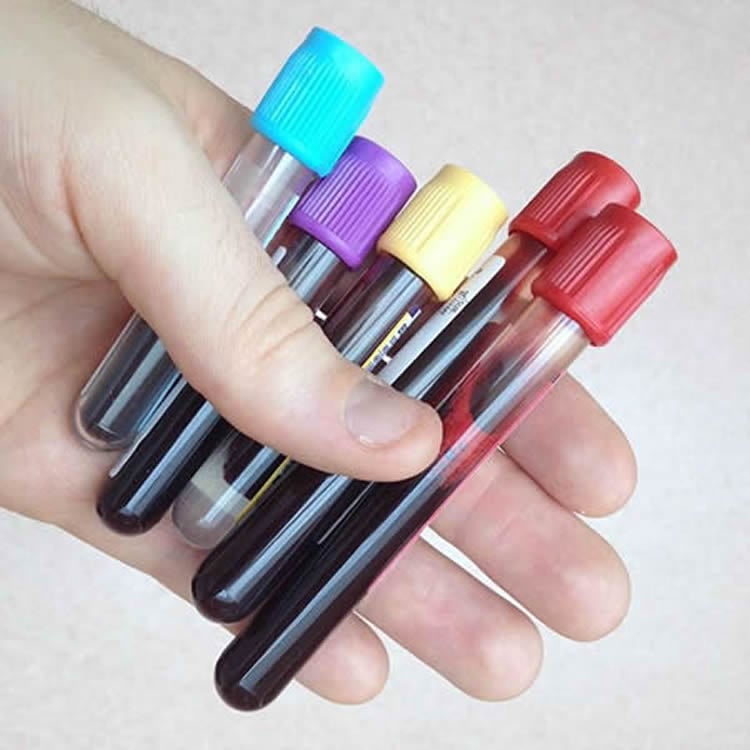Researchers at UT Southwestern Medical Center have identified a blood biomarker that may aid in earlier diagnosis of children with autism spectrum disorder, or ASD.
Early intervention is the key to the best treatment for ASD, which affects about 1 in 70 children. Unfortunately, most children are not diagnosed until about age 4, when communication and social disabilities become apparent. This neurodevelopmental disorder is characterized by social interaction and communication challenges, and restricted and repetitive patterns of behavior.
In a recent edition of Scientific Reports, UT Southwestern researchers reported on the identification of a blood biomarker that could distinguish the majority of ASD study participants versus a control group of similar age range. In addition, the biomarker was significantly correlated with the level of communication impairment, suggesting that the blood test may give insight into ASD severity.

“Numerous investigators have long sought a biomarker for ASD,” said Dr. Dwight German, study senior author and Professor of Psychiatry at UT Southwestern. “The blood biomarker reported here along with others we are testing can represent a useful test with over 80 percent accuracy in identifying ASD.”
Since other studies have found abnormalities in the immune systems of autistic children, researchers set out to search for antibodies in the blood related to ASD. In this study, researchers found that boys with ASD had significantly reduced levels of a serum IgG1 antibody. Investigating further, researchers analyzed 25 peptoid compounds that bound to IgG1 and zeroed in on one – ASD1 – that was 66 percent accurate in diagnosing ASD. When combined with thyroid stimulating hormone level measurements, the ASD1-binding biomarker was 73 percent accurate at diagnosis.
More testing, including analysis of blood samples from girls with ASD, is needed to further validate the findings, Dr. German said. Girls made up a small ratio of the study group, and the biomarker did not correlate as strongly with ASD diagnosis as with boys.
Other UT Southwestern researchers who contributed to this study were Dr. Laura Hewitson, Adjunct Associate Professor of Psychiatry at UTSW, and Director of Research at the Johnson Center for Child Health and Development in Austin, Texas; Dr. Umar Yazdani, research scientist; Dr. Bharathi Gadad, clinical research coordinator in Psychiatry; and Wenhao Li, research associate in Cell Biology. Researchers from the Johnson Center for Child Health and Development in Austin also assisted.
Funding: The study was supported by the Simons Foundation Autism Research Initiative, Department of Defense, National Institutes of Health, The Ted Lindsay Foundation, and the Johnson Center for Child Health and Development.
Source: Gregg Shields – UT Southwestern
Image Source: The image is in the public domain.
Original Research: Full open access research for “A Search for Blood Biomarkers for Autism: Peptoids” by Sayed Zaman, Umar Yazdani, Yan Deng, Wenhao Li, Bharathi S. Gadad, Linda Hynan, David Karp, Nichole Roatch, Claire Schutte, C. Nathan Marti, Laura Hewitson and Dwight C. German in Scientific Reports. Published online Janury 14 2016 doi:10.1038/srep19164
Abstract
A Search for Blood Biomarkers for Autism: Peptoids
Autism spectrum disorder (ASD) is a neurodevelopmental disorder characterized by impairments in social interaction and communication, and restricted, repetitive patterns of behavior. In order to identify individuals with ASD and initiate interventions at the earliest possible age, biomarkers for the disorder are desirable. Research findings have identified widespread changes in the immune system in children with autism, at both systemic and cellular levels. In an attempt to find candidate antibody biomarkers for ASD, highly complex libraries of peptoids (oligo-N-substituted glycines) were screened for compounds that preferentially bind IgG from boys with ASD over typically developing (TD) boys. Unexpectedly, many peptoids were identified that preferentially bound IgG from TD boys. One of these peptoids was studied further and found to bind significantly higher levels (>2-fold) of the IgG1 subtype in serum from TD boys (n = 60) compared to ASD boys (n = 74), as well as compared to older adult males (n = 53). Together these data suggest that ASD boys have reduced levels (>50%) of an IgG1 antibody, which resembles the level found normally with advanced age. In this discovery study, the ASD1 peptoid was 66% accurate in predicting ASD.
“A Search for Blood Biomarkers for Autism: Peptoids” by Sayed Zaman, Umar Yazdani, Yan Deng, Wenhao Li, Bharathi S. Gadad, Linda Hynan, David Karp, Nichole Roatch, Claire Schutte, C. Nathan Marti, Laura Hewitson and Dwight C. German in Scientific Reports. Published online Janury 14 2016 doi:10.1038/srep19164







